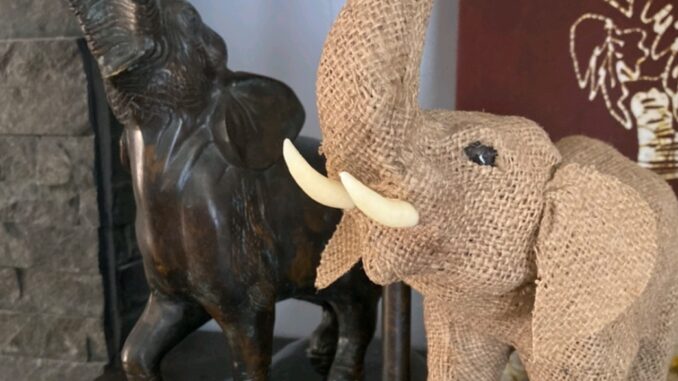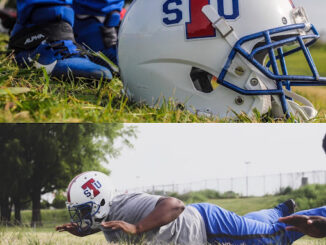
By Dominique Ainsworth
JSHOP Reporter
For Sabine Ainsworth elephants represent strength, protection, good luck and good fortune. This is why Ainsworth, a mom of four from Fairfax, Va., gave each of her children an elephant figurine similar to the ones she grew up with as a child.
She often talks about growing up with elephant figurines peppered throughout her childhood homes, and how she came to incorporate them in her home now.
“We had this gray elephant in the house…. We brought it back from Canada, we brought it to St. Kitts and different houses we lived in. It’s still there today,” Ainsworth said.
The St. Kitts native talks about the personal connection and sentimental value of each elephant and how they are able to give her “a memory of her [my] family,” especially now that she’s living in a different country and “hasn’t been home for years.”
Ainsworth remembers being curious about the symbolic meaning attached to elephants and the first time she looked it up.“Elephants are supposed to bring good luck and strength and health and fortune to your life… , “ she said. “I wanted to manifest that for [my kids] as well.”
She said that discovery is what led her to give each of her children an elephant figurine.
“It’s interesting how such a small object can hold so much meaning,” Ainsworth’s daughter, Sophia, said.
Ainsworth researched how elephant designs and figures are used in the Chinese practice of feng shui and the importance of their position, as well as the direction they’re facing. It is said that figurines with the trunks facing up radiate positive energy, luck, prosperity and kindness.
“My father always had elephants in the family room,” she said. She also keeps elephants in the shared space for “bonding and positive energy,” as well as “to welcome the home.”
The symbolism and the role elephants play in Ainsworth’s life can be shared by many other people.
Elephants play a role in several different groups and cultures. One notable group is Delta Sigma Theta Sorority, Inc., one of the world’s largest community service organizations. Elephants are considered the Deltas’ unofficial mascot, and alumnae will often have them in their homes as a symbol of strength and perseverance.
Elephants are also important in African and Asian cultures. They represent inner strength and are used in a variety of cultural practices. In Ashanti tradition, they are believed to be the reincarnated souls of past leaders. In both African and Asian cultures, they are symbols of wisdom and protection.
Ainsworth said she also believes that elephants bring protection. When her father died in December 2020, the elephant symbols in her life provided a sense of comfort.
“Having the elephants now is a symbol and remembrance of him,” she said.



Be the first to comment